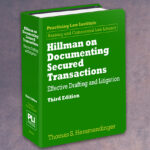
Be Careful When Forwarding Emails To Counsel And Clients
//
 This website has detailed numerous instances of lawyers not understanding technology with hilarious outcomes. Indeed, lawyers and other legal professionals routinely get into “reply all” disasters, and lawyers have more recently been getting into trouble using ChatGPT and other new technologies. However, one simple mistake that often comes up in my practice is when lawyers forward emails to counsel or clients not understanding that they are perhaps forwarding content they might not wish to share. For this reason, lawyers should be very careful when forwarding messages and should start new email chains whenever there is doubt about the propriety of forwarding an email.
This website has detailed numerous instances of lawyers not understanding technology with hilarious outcomes. Indeed, lawyers and other legal professionals routinely get into “reply all” disasters, and lawyers have more recently been getting into trouble using ChatGPT and other new technologies. However, one simple mistake that often comes up in my practice is when lawyers forward emails to counsel or clients not understanding that they are perhaps forwarding content they might not wish to share. For this reason, lawyers should be very careful when forwarding messages and should start new email chains whenever there is doubt about the propriety of forwarding an email.
I first discovered that people should be careful when forwarding messages to clients and counsel when I was an associate at a small law firm before starting my practice. In an email that a partner forwarded me, I was asked follow up on a question posed by the client. I then forwarded this message, including the partner’s email, to the client noting that I would be handling the matter and asking a few questions to get started on the project.
googletag.cmd.push( function() { // Display ad. googletag.display( "div-id-for-top-300x250" ); });My boss was angry that I forwarded to the client the message he sent asking me to jump on this matter. I though this was an overreaction, since there was nothing sensitive in his message, and I wanted the client to know how I came to be involved on the project. However, the partner likely wanted me to start a clean conversation with the client so that the client wouldn’t see all the steps that came before I got involved.
 Sponsored Experience AI-Powered Contract Negotiation With Ontra Tired of negotiating and managing routine contracts? Ontra makes the most of human expertise and proprietary AI assistance to automate contracts like never before. From Ethan Beberness
Sponsored Experience AI-Powered Contract Negotiation With Ontra Tired of negotiating and managing routine contracts? Ontra makes the most of human expertise and proprietary AI assistance to automate contracts like never before. From Ethan Beberness However, there have been times in my career that there have been less innocuous instances of lawyers forwarding messages that included content that perhaps should not be shared. For instance, I remember one time, my client was in contentious settlement negotiations with another party to a litigation matter. The lawyers were trying to keep the clients separated in the discussions since we knew that the matter had a better shot at being resolved if it was handled by more level-headed counterparts.
In any event, one of the lawyers emailed a settlement proposal to the client to ask what the client thought about the proposed numbers. However, the forwarded email also included much of the back and forth that had gone on during the deal, including all of the reasoning why a given party had claims or defenses in the litigation. The client was so riled up by the arguments expressed, which the client thought were malarkey, that it nearly killed the deal. Only because counsel was able to calm the client down did the deal reach a resolution. However, the lawyer could have saved everyone a lot of effort by just conveying the offer on the table without forwarding all of the back and forth.
googletag.cmd.push( function() { // Display ad. googletag.display( "div-id-for-middle-300x250" ); }); googletag.cmd.push( function() { // Display ad. googletag.display( "div-id-for-storycontent-440x100" ); }); googletag.cmd.push( function() { // Display ad. googletag.display( "div-id-for-in-story-youtube-1x1" ); });If lawyers are not careful, they can sometimes forward confidential attorney client communications when they forward messages to other lawyers. Several years ago, I was involved in another settlement negotiation with counsel. For some reason, my adversary forwarded me an email from his client to explain some of the reasoning for why a given point in the settlement talks was so contentious. However, the lawyer did not delete the other parts of the email chain, and all of the back and forth between the lawyer and the client dating back weeks was also sent to me.
Of course, I tried not to look at some of the information included in the exchange, and this minimized the issues caused by my adversary’s carelessness. The lawyer apologized for what he did after realizing that he sent an email chain with numerous communications between him and his client, but some damage had already been done. The lawyer could have easily pasted the client’s reasoning into a new email, or at least deleted parts of the chain that predated the explanation the lawyer wanted to send to me. But with a few clicks and little foresight, the lawyer accidentally sent me communications with his client on all kinds of matters.
Sponsored Sponsored Survey Results: A Perspective On The Private Markets Ontra surveyed over 400 private markets professionals about what to expect this year and their legal process pain points. From Kerry G. Benn, Ontra
Sponsored Survey Results: A Perspective On The Private Markets Ontra surveyed over 400 private markets professionals about what to expect this year and their legal process pain points. From Kerry G. Benn, Ontra  Sponsored Documenting Secured Transactions: A New Guide For Practitioners A newly updated PLI treatise provides both the legal framework and practical guidance on documenting secured transactions, including important details about 2022 amendments to the UCC. From Practising Law Institute
Sponsored Documenting Secured Transactions: A New Guide For Practitioners A newly updated PLI treatise provides both the legal framework and practical guidance on documenting secured transactions, including important details about 2022 amendments to the UCC. From Practising Law Institute  Sponsored NetDocuments’ Rebecca Sattin On Customer-First Approach And Future-Proofing Your Firm How a customer-focused transition from Worldox to NetDocuments sets the stage for a future of successful tech advancement. From Ethan Beberness
Sponsored NetDocuments’ Rebecca Sattin On Customer-First Approach And Future-Proofing Your Firm How a customer-focused transition from Worldox to NetDocuments sets the stage for a future of successful tech advancement. From Ethan Beberness  Sponsored NetDocuments’ Rebecca Sattin On Customer-First Approach And Future-Proofing Your Firm How a customer-focused transition from Worldox to NetDocuments sets the stage for a future of successful tech advancement. From Ethan Beberness
Sponsored NetDocuments’ Rebecca Sattin On Customer-First Approach And Future-Proofing Your Firm How a customer-focused transition from Worldox to NetDocuments sets the stage for a future of successful tech advancement. From Ethan Beberness Technology and lawyers do not always get along, and attorneys — just like every other type of professional — make mistakes with emails. However, to minimize the chance that something with be disclosed that should not be revealed, lawyers should be careful when forwarding emails, and should use new email chains and delete sensitive content to minimize the risk of an accidental disclosure.
 Jordan Rothman is a partner of The Rothman Law Firm, a full-service New York and New Jersey law firm. He is also the founder of Student Debt Diaries, a website discussing how he paid off his student loans. You can reach Jordan through email at [email protected].
Jordan Rothman is a partner of The Rothman Law Firm, a full-service New York and New Jersey law firm. He is also the founder of Student Debt Diaries, a website discussing how he paid off his student loans. You can reach Jordan through email at [email protected].
 Sponsored Experience AI-Powered Contract Negotiation With Ontra Tired of negotiating and managing routine contracts? Ontra makes the most of human expertise and proprietary AI assistance to automate contracts like never before. From Ethan Beberness
Sponsored Experience AI-Powered Contract Negotiation With Ontra Tired of negotiating and managing routine contracts? Ontra makes the most of human expertise and proprietary AI assistance to automate contracts like never before. From Ethan Beberness  Sponsored LawPay Pro Offers Upgraded Time And Billing Essentials AffiniPay’s latest product for the legal community, introduced earlier this year, presents a simple web-based solution for attorneys seeking seamless firm cash flow. From Above the Law
Sponsored LawPay Pro Offers Upgraded Time And Billing Essentials AffiniPay’s latest product for the legal community, introduced earlier this year, presents a simple web-based solution for attorneys seeking seamless firm cash flow. From Above the Law  Topics
Topics Email, Jordan Rothman, Small Law Firms, Technology
ES by OMG
Euro-Savings.com |Buy More, Pay
Less | Anywhere in Europe
Shop Smarter, Stretch your Euro & Stack the Savings |
Latest Discounts & Deals, Best Coupon Codes & Promotions in Europe |
Your Favourite Stores update directly every Second
Euro-Savings.com or ES lets you buy more and pay less anywhere in Europe. Shop Smarter on ES Today. Sign-up to receive Latest Discounts, Deals, Coupon Codes & Promotions. With Direct Brand Updates every second, ES is Every Shopper’s Dream come true! Stretch your dollar now with ES. Start saving today!
Originally posted on: https://abovethelaw.com/2023/08/be-careful-when-forwarding-emails-to-counsel-and-clients/